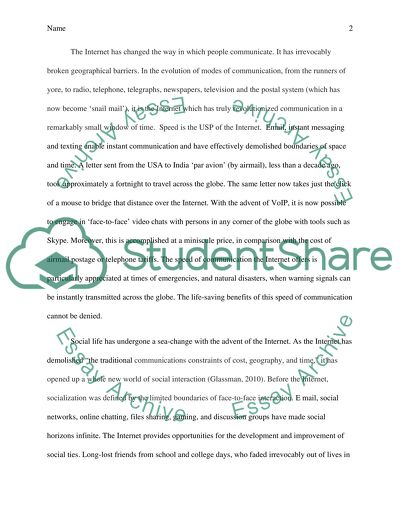Cite this document
(“The Internet Essay Example | Topics and Well Written Essays - 1000 words”, n.d.)
The Internet Essay Example | Topics and Well Written Essays - 1000 words. Retrieved from https://studentshare.org/information-technology/1462642-the-internet
The Internet Essay Example | Topics and Well Written Essays - 1000 words. Retrieved from https://studentshare.org/information-technology/1462642-the-internet
(The Internet Essay Example | Topics and Well Written Essays - 1000 Words)
The Internet Essay Example | Topics and Well Written Essays - 1000 Words. https://studentshare.org/information-technology/1462642-the-internet.
The Internet Essay Example | Topics and Well Written Essays - 1000 Words. https://studentshare.org/information-technology/1462642-the-internet.
“The Internet Essay Example | Topics and Well Written Essays - 1000 Words”, n.d. https://studentshare.org/information-technology/1462642-the-internet.


